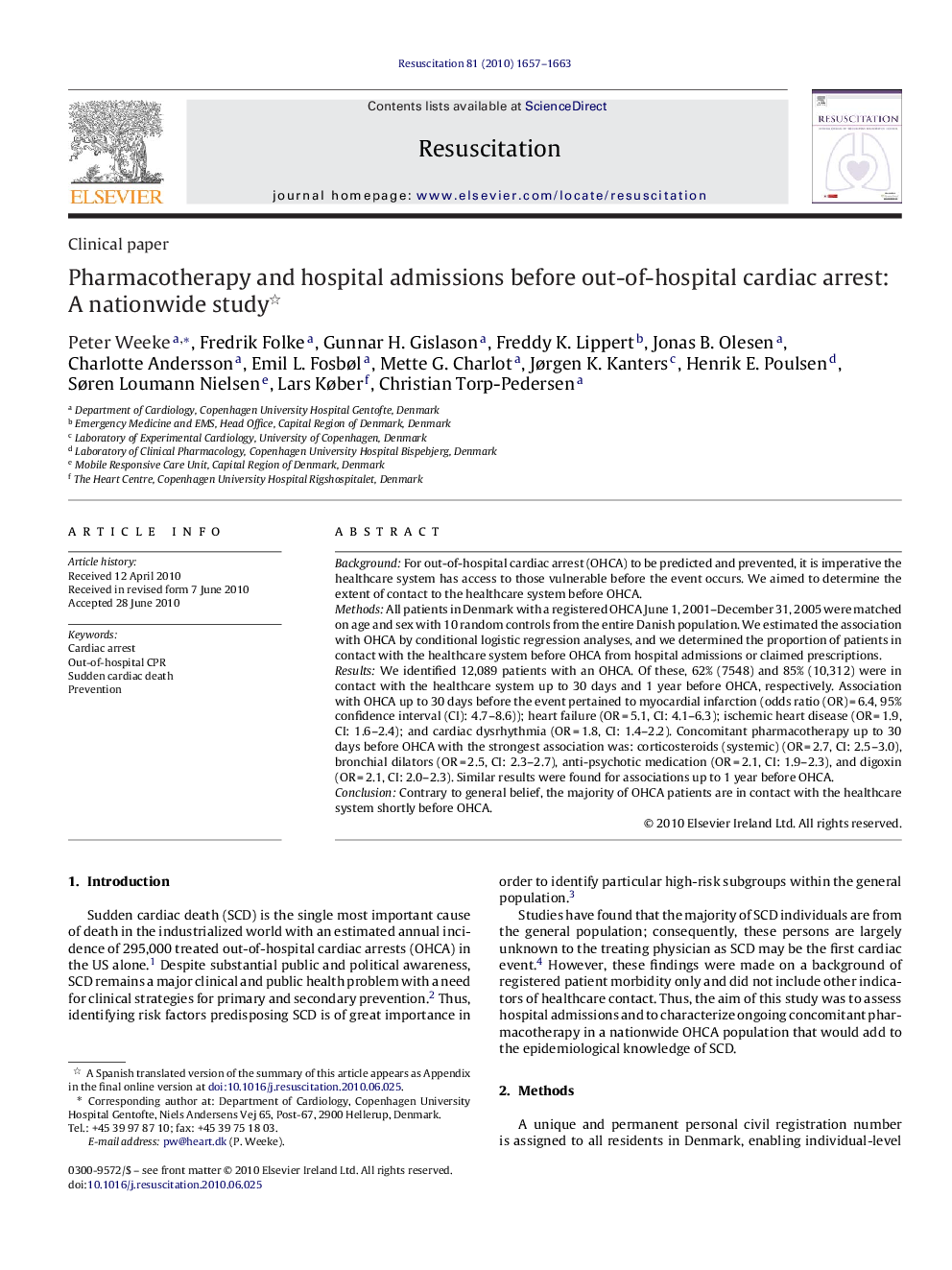| Article ID | Journal | Published Year | Pages | File Type |
|---|---|---|---|---|
| 3009409 | Resuscitation | 2010 | 7 Pages |
BackgroundFor out-of-hospital cardiac arrest (OHCA) to be predicted and prevented, it is imperative the healthcare system has access to those vulnerable before the event occurs. We aimed to determine the extent of contact to the healthcare system before OHCA.MethodsAll patients in Denmark with a registered OHCA June 1, 2001–December 31, 2005 were matched on age and sex with 10 random controls from the entire Danish population. We estimated the association with OHCA by conditional logistic regression analyses, and we determined the proportion of patients in contact with the healthcare system before OHCA from hospital admissions or claimed prescriptions.ResultsWe identified 12,089 patients with an OHCA. Of these, 62% (7548) and 85% (10,312) were in contact with the healthcare system up to 30 days and 1 year before OHCA, respectively. Association with OHCA up to 30 days before the event pertained to myocardial infarction (odds ratio (OR) = 6.4, 95% confidence interval (CI): 4.7–8.6)); heart failure (OR = 5.1, CI: 4.1–6.3); ischemic heart disease (OR = 1.9, CI: 1.6–2.4); and cardiac dysrhythmia (OR = 1.8, CI: 1.4–2.2). Concomitant pharmacotherapy up to 30 days before OHCA with the strongest association was: corticosteroids (systemic) (OR = 2.7, CI: 2.5–3.0), bronchial dilators (OR = 2.5, CI: 2.3–2.7), anti-psychotic medication (OR = 2.1, CI: 1.9–2.3), and digoxin (OR = 2.1, CI: 2.0–2.3). Similar results were found for associations up to 1 year before OHCA.ConclusionContrary to general belief, the majority of OHCA patients are in contact with the healthcare system shortly before OHCA.
